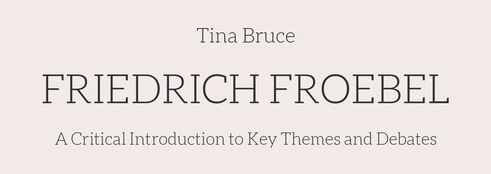This book considers the origins of Froebelian early childhood education providing context to the development of his theories and ideas, critically examines the key themes of this philosophy of education and explores the relevance of Froebelian practice today.
Tina Bruce reflects on central aspects of Froebelian philosophy of education: the importance of family, highly trained teachers, engagement with nature, mother songs, movement games, play and self-activity of the child, the whole child and the Froebelian concept of unity. In exploring each element Bruce considers the implications for Froebelian practice and research today, and addresses the views of critics and supporters, Each aspect is considered within an international context, drawing on research and practice from across the world. The final chapter gathers together the next steps for Froebelian early childhood education, providing navigational tools and suggestions for what needs to be addressed if Froebel is to remain useful to future practitioners, researchers and policy makers.
Available in Hardback, Paperback and e-book formats from the publishers:
Bloomsbury Publishing
